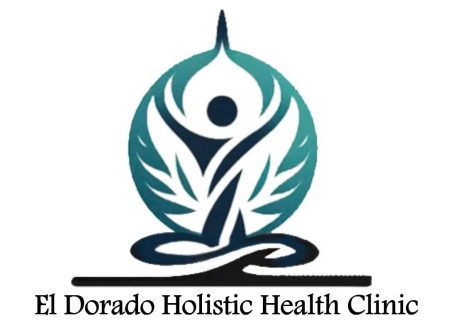Integrative Medicine
Integrative Medicine: The Best of Both Worlds for Chronic Illness Care
Let’s face it – dealing with a chronic illness can feel like you’re trying to juggle too many balls. You have prescriptions, specialists, and treatments galore, but sometimes it seems like something’s missing. Enter integrative medicine – a harmonious blend of conventional medicine and alternative therapies that aim to treat you as a whole person, not just a set of symptoms. Think of it as a holistic approach that combines the best of both worlds!
What Is Integrative Medicine?
Integrative medicine is all about bringing together conventional medical treatments (like medications and surgery) with complementary therapies (like acupuncture, herbal remedies, and yoga). The goal? To offer a more balanced approach that doesn’t just focus on “fixing” symptoms but on improving overall well-being.
- Example: Instead of just prescribing medication for chronic pain, an integrative medicine doctor might also recommend acupuncture or mindfulness practices to help you manage stress and pain from multiple angles.
Why Integrative Medicine Works for Chronic Illness
Chronic illnesses – think diabetes, heart disease, autoimmune conditions – don’t have quick fixes. They require ongoing care and lifestyle changes, which can be draining. Integrative medicine steps in to bridge the gap, offering complementary treatments that can relieve symptoms, reduce stress, and enhance quality of life.
- Whole-Person Focus: Integrative medicine takes into account your physical, mental, emotional, and even spiritual health. It’s not just about a prescription – it’s about everything from diet to mental health practices.
- Supportive Care: Complementary therapies, such as massage, meditation, or herbal supplements, can ease symptoms and improve well-being without replacing conventional treatments.
Key Components of Integrative Medicine
So, what can you expect from an integrative medicine approach? Here are some of the core therapies and methods that might be included:
- Nutrition and Lifestyle Changes: Food is often considered the “first medicine” in integrative care. Your treatment plan might include dietary guidance to reduce inflammation, improve energy, and support overall health.
- Mind-Body Therapies: Mindfulness, meditation, yoga, and stress-reduction techniques are powerful tools that can reduce the impact of chronic illness. These practices don’t just relax the mind – they can improve your immune system and reduce pain.
- Acupuncture: Known for reducing pain, improving energy, and promoting relaxation, acupuncture is a go-to in integrative medicine, especially for managing chronic pain and stress-related issues.
- Herbal and Nutritional Supplements: Sometimes a diet needs a boost. Supplements and herbs can help with specific symptoms or nutritional deficiencies, but they’re used carefully and with professional guidance to avoid interactions with medications.
- Physical Therapy and Movement: Physical activity is crucial, but it’s not one-size-fits-all. Integrative medicine personalizes movement routines that could range from light stretching to more intense exercise, depending on your needs and condition.
- Functional Medicine Testing: Advanced testing, such as hormone levels, vitamin deficiencies, and microbiome analysis, can provide a clearer picture of your health and help target treatments more effectively.
Examples of Integrative Care for Specific Conditions
- Diabetes: Alongside medications, you might get guidance on an anti-inflammatory diet, stress management practices, and even acupuncture to manage blood sugar levels and improve energy.
- Arthritis: Integrative care could include anti-inflammatory foods, acupuncture for pain relief, and supplements like turmeric or omega-3s to support joint health.
- Autoimmune Diseases: Treatments might focus on gut health (to reduce inflammation), stress reduction techniques, and gentle movement to support immune function without overloading the body.
Benefits of Integrative Medicine for Chronic Illness
- Fewer Side Effects: Complementary therapies are often gentler and can reduce the need for high doses of medications.
- Improved Symptom Management: Many alternative therapies focus on relieving symptoms that medications alone might not address.
- Empowerment and Control: Integrative medicine gives you more tools to manage your health proactively, putting you in the driver’s seat of your care.
- Quality of Life: By reducing pain, improving energy, and supporting mental health, integrative care can significantly enhance day-to-day well-being.
Is Integrative Medicine Right for You?
If you’re living with a chronic illness and feel like conventional medicine is missing something, integrative medicine could be the extra support you need. It doesn’t replace traditional treatment but offers a more comprehensive approach that considers every aspect of your health.
Final Thoughts: Embrace the Best of Both Worlds
Integrative medicine is about creating a balanced partnership between conventional and complementary care. By combining the strengths of both, you get a treatment approach that’s as unique as you are, targeting the physical, mental, and emotional aspects of health.
So, why settle for just one approach when you can have the best of both worlds? With integrative medicine, you’re not just treating your illness – you’re nourishing your whole self.
© Copyright. All rights reserved.
We need your consent to load the translations
We use a third-party service to translate the website content that may collect data about your activity. Please review the details in the privacy policy and accept the service to view the translations.
